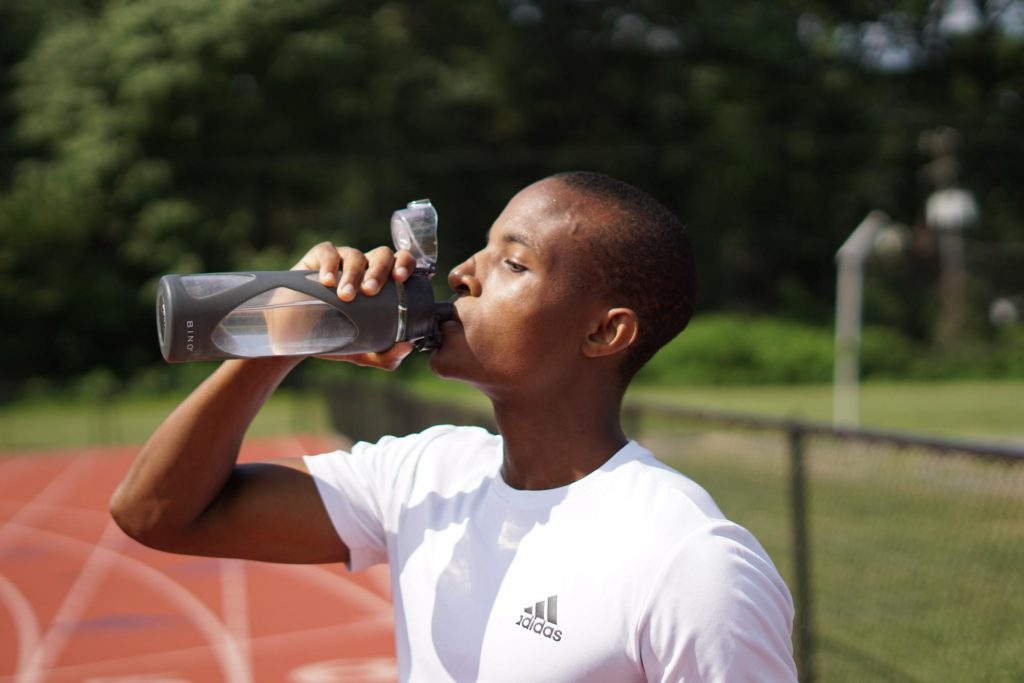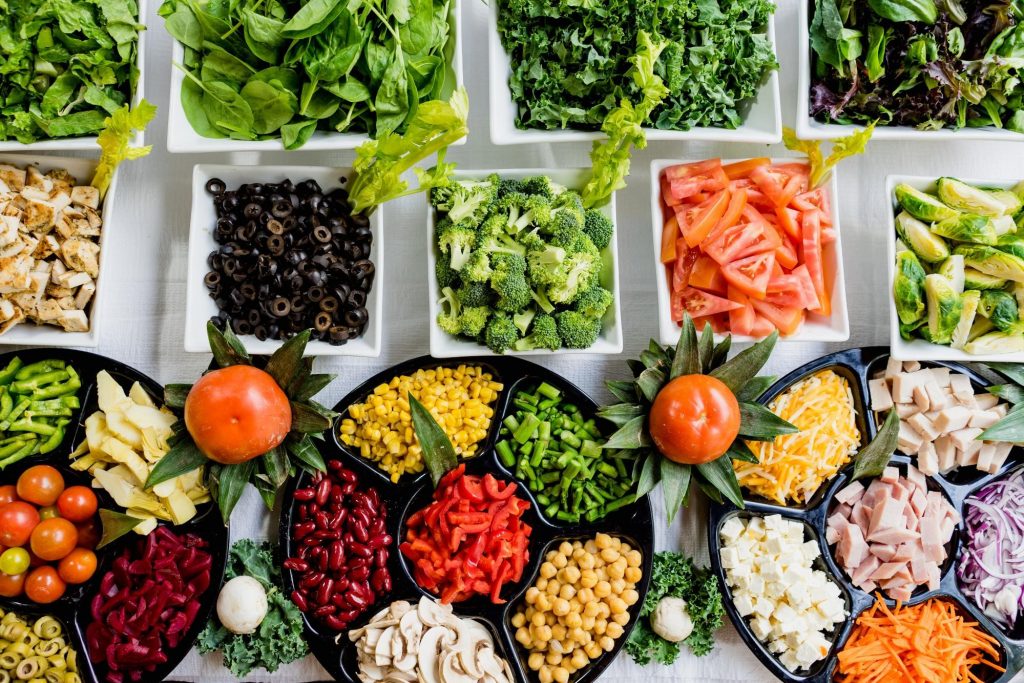March 25, 2021
Everyone knows how great that first glass of water is after a good workout, when you wake up in the morning or come inside on a hot day. Feeling thirsty can throw off your whole body and make you just feel desperate for some water intake. When you experience thirst, it is your body demanding nutrients and enough fluid to help it function properly. After all, the human body is approximately 60% water. Hydration is important to replenish any fluids that you lose throughout the day.
It’s natural to feel thirsty, especially after doing things like eating spicy foods, sweating, or waking up. However, some individuals will feel more thirsty on a day-to-day basis. If you are someone who feels like you can’t get enough water no matter what you do, there may be a reason. Different medical conditions, hormone changes, lifestyle factors, and more can have a big effect on your thirst levels, not to mention general dehydration.
Every person’s body is different, and excessive thirst is not necessarily a sign of serious illness or complicated problems. Sometimes, you’re just thirsty at different times of the day. However, if you’re starting to notice a chronic issue, the best way to get to the bottom of it is to do your research and contact your provider. Let’s dive into a few different reasons you may be excessively thirsty during the day and why your fluid intake is so important in the first place.
Why does your body need water?
 You’ve grown up being told you need a certain volume of water each day for your overall health, but you may not fully understand why water is so important to your daily life. Water affects many different areas of the body from your organs and tissues to body temperature regulation to your digestive system. Because your body is consists primarily of water, it serves as the building block for your cells. It also helps protect your nerves, joints, and brain function. Not only that, but water aids the digestive tract and helps rid your body of waste. These are the microscopic effects of water intake, but there are things that are more obvious as well.
You’ve grown up being told you need a certain volume of water each day for your overall health, but you may not fully understand why water is so important to your daily life. Water affects many different areas of the body from your organs and tissues to body temperature regulation to your digestive system. Because your body is consists primarily of water, it serves as the building block for your cells. It also helps protect your nerves, joints, and brain function. Not only that, but water aids the digestive tract and helps rid your body of waste. These are the microscopic effects of water intake, but there are things that are more obvious as well.
When you start to drink more water, you’re going to start noticing some differences in your body. Saliva, for example, is made with water and will produce better results when your body gets water. This helps you eat and keeps your mouth happy and healthy. You’ll also notice a difference in your skin health if you drink a lot of water. Goodbye dry skin, hello healthy glow. Lastly, if you are experiencing fatigue or exhaustion, it may be because of water loss. Drinking more water will give you energy down to your neurons. You’ll be amazed how much plain water can make a difference for your bloodstream, skin moisture, and energy levels.
Why are you feeling thirsty?
It’s clear you need water to function effectively. Thirst is simply the body’s way of telling you it needs more water. There are so many different reasons for feeling thirsty and experiencing side effects of water loss like dizziness, headaches, and fatigue. So, why are you feeling thirsty? And when are these feelings of thirst a sign something more serious may be going on?
General Dehydration
When people are thirsty, the most common cause is simply dehydration. When you are feeling dehydrated, it means your body does not have the amount of water it needs to carry out its daily tasks. A few signs of dehydration are thirst, darker urine, fatigue, headache, and dry mouth. It can be caused by staying out in the sun too long, working out and sweating a lot, or excessive vomiting. Mild dehydration is not uncommon and is really nothing to worry about. Just grab a water bottle and start giving your body the moisture it needs. However, serious dehydration needs to be addressed quickly by a medical professional.
While dehydration is the most common reason for thirst, there are plenty of other reasons you may feel thirsty. Some reasons are related to health problems, while others are simply related to your lifestyle.
Diabetes
Patients with diabetes will often have many symptoms related to their illness, including dehydration. When you have diabetes, your body has trouble naturally producing insulin so your glucose levels tend to spike. This triggers your kidneys into getting rid of that excess glucose with frequent urination. This form of fluid loss will typically cause you to feel thirsty and potentially lead to unexplained weight loss. If you’re experiencing these symptoms, ask for a blood test to see if you may have this complication due to diabetes.
Dry Mouth
Your mouth normally creates moisture and saliva. If your glands aren’t functioning efficiently, you may experience dry mouth symptoms which will leave you feeling thirsty. Common reasons for this include medication use, smoking, cancer treatments, stress, or nerve damage to the mucus membrane in your mouth. If you have dr
y mouth, also called xerostomia, you’re also at higher risk for bad breath, difficulty chewing, or gum damage.
Anemia
Anemia is a disease wherein your red blood cell count is lower than normal. While individuals with mild or moderate anemia may not experience excessive thirst, it can be a sign the condition is getting more severe. Consult a provider if your issues with water intake are coupled with excess dizziness, yellowing skin, a heightened pulse, or excessive sweating.
Thyroid Issues
Your thyroid gland sits in your throat and monitors your appetite, temperature, and other bodily functions. When you experience thyroid issues, there can be a variety of side effects like dry mouth, anxie
ty, heavy periods for women, or a rise in body temperature. All of these may cause excessive thirst.
Women’s Menstruation
For women, that monthly visitor can cause all sorts of problems and discomfort. While you’re menstruating, you may experience a desire for excess water. This happens for a few different reasons. Your hormones of estrogen and progesterone both affect your fluid levels in the body, so when they are out of sync during your period, that can be a cau
se of dehydration. If your flow is on the heavier side, you are also losing a lot of blood and a lot of fluids. During that time of the month, it may be a good idea to keep a water bottle around in case you experience extreme thirst.
Pregnancy
 Another reason women may feel thirsty is during pregnancy. At this time, you’re drinking for two. You’re probably familiar with pregnant women needing more trips to the bathroom or experiencing morning sickness. Both of these situations deplete your body’s water content. Losing so much fluid will mean you’ll feel thirsty for more.
Another reason women may feel thirsty is during pregnancy. At this time, you’re drinking for two. You’re probably familiar with pregnant women needing more trips to the bathroom or experiencing morning sickness. Both of these situations deplete your body’s water content. Losing so much fluid will mean you’ll feel thirsty for more.
Stress
Stress and irritability affect your brain and mental health, but it has physical implications for the body as well. If you experience chronic stress, your body is constantly trying to regulate your blood pressure. It will often use water molecules to do so. Constant thirst may just mean you’re feeling stressed and you need to give your body and brain the space to relax and calm down.
Eating Habits

Sometimes needing to drink water has nothing to do with health problems and more to do with a certain situation. The foods you eat are a major reason for why you may be thirsty. Certain ingredients spike a need for plenty of water. For example, an excess of salt pulls water out of cells and can cause your body to lose moisture which causes thirst. If you are trying to lower your carbs, you may feel thirstier because carbohydrates absorb water better than proteins or fats. Even just eating spicy foods that dry your mouth out can cause you to feel thirsty. Consult a nutritionist if you think a change in diet could help you feel less thirsty throughout the day.
Exercise
Working out is good for your body all around, but it can cause an excess of thirst in the body. It is natural to sweat during an intense workout or a morning run. As your body cools itself off with sweat, it is losing water and puts you at risk of dehydration. Next time, just make sure you take a bottle of water with you to replenish the water you’re sweating out.
Lifestyle Factors
Feeling thirsty is often just a natural part of life. There are moments you shouldn’t worry about if you are feeling thirsty. For example, if you live in Los Angeles and constantly spend time in the sun and hot weather, it’s going to make you feel more tired and thirsty. Or, if you are an athlete who spends hours a day in the gym, you’re going to need a high water content. You may even feel thirsty because you have a hangover from a night out drinking. Consider these lifestyle factors before you start to worry about more serious problems.
What time of day do you feel the most thirsty?
 For many people, you may start to realize you are more thirsty at different times of the day. Maybe your sleeping environment always has a glass of water on your nightstand, because you wake up thirsty. This is natural. When you sleep, your body isn’t functioning at 100% so you lose fluids and electrolytes. This is a main reason why you wake up craving water. Others may feel more thirsty at bedtime. Chances are this is your body’s way of trying to catch up with how much water it needs every day. Next time, just try to drink more during the day to avoid this problem at night.
For many people, you may start to realize you are more thirsty at different times of the day. Maybe your sleeping environment always has a glass of water on your nightstand, because you wake up thirsty. This is natural. When you sleep, your body isn’t functioning at 100% so you lose fluids and electrolytes. This is a main reason why you wake up craving water. Others may feel more thirsty at bedtime. Chances are this is your body’s way of trying to catch up with how much water it needs every day. Next time, just try to drink more during the day to avoid this problem at night.
Solutions for Excessive Thirst
Once you notice a problem with excessive thirst, it’s time to do something about it. Some solutions can be handled on your own, but if the problem persists, it may be time to consult a doctor or medical professional. Here are just a few suggestions to quench your thirst.
The obvious answer is to drink more water.
The first solution is perhaps the most obvious of all, just drink more water. Experts will recommend you have about two liters of water a day which comes out to eight 8-ounce glasses (64 ounces of water). Even carrying a bottle of water with you daily is a pathway to healthier water intake. Next time you reach for a beverage, opt for water rather than caffeine or soda.
Change your diet.
If food can make you extra thirsty, watching your diet can be a solution to the problem. Avoid super salty or spicy foods, as they usually make you crave water. Instead, opt for fruits and vegetables like watermelon, cucumbers, and celery. These are made almost entirely of water and can help you with your daily intake. Just because you need more water, doesn’t mean you have to give up good flavors and fun foods.
Try chewing gum.
One tip that can help with saliva production is chewing gum. By keeping moisture in your mouth, you are avoiding those feelings of dry mouth and excessive thirst. There aren’t many other health benefits to chewing gum, but it can help you feel less thirsty.
Drink water during workouts
For individuals and athletes who exercise intensely, there is a way to do so that will keep your body happy, healthy, and hydrated. Since you’ll be sweating out nutrients and electrolytes, replenish your body with sports drinks and water. This will help you feel better overall as you workout and keep your body full of water.
Seek medical treatment.
At-home remedies only go so far. If you are still experiencing intense thirst after trying the changes listed above, there is most likely an underlying condition causing you to feel thirsty. Check with a healthcare provider about ways you can find a solution to the root cause.
DISCLAIMER
The information featured in this site is general in nature. The site provides health information designed to complement your personal health management. It does not provide medical advice or health services and is not meant to replace professional advice or imply coverage of specific clinical services or products. The inclusion of links to other web sites does not imply any endorsement of the material on such websites.